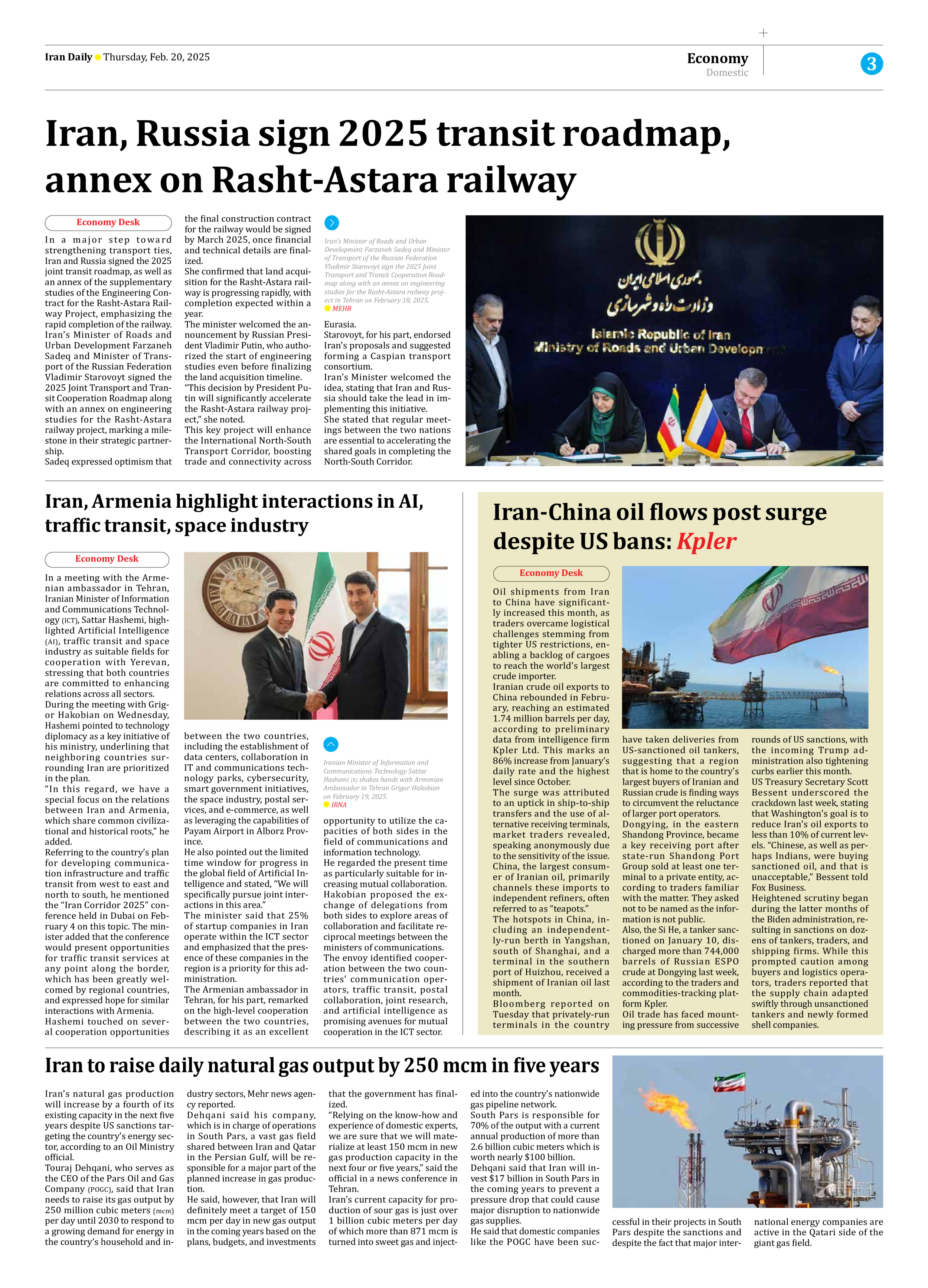
Iran-China oil flows post surge despite US bans: Kpler
Oil shipments from Iran to China have significantly increased this month, as traders overcame logistical challenges stemming from tighter US restrictions, enabling a backlog of cargoes to reach the world’s largest crude importer.
Iranian crude oil exports to China rebounded in February, reaching an estimated 1.74 million barrels per day, according to preliminary data from intelligence firm Kpler Ltd. This marks an 86% increase from January’s daily rate and the highest level since October.
The surge was attributed to an uptick in ship-to-ship transfers and the use of alternative receiving terminals, market traders revealed, speaking anonymously due to the sensitivity of the issue. China, the largest consumer of Iranian oil, primarily channels these imports to independent refiners, often referred to as “teapots.”
The hotspots in China, including an independently-run berth in Yangshan, south of Shanghai, and a terminal in the southern port of Huizhou, received a shipment of Iranian oil last month.
Bloomberg reported on Tuesday that privately-run terminals in the country have taken deliveries from US-sanctioned oil tankers, suggesting that a region that is home to the country’s largest buyers of Iranian and Russian crude is finding ways to circumvent the reluctance of larger port operators.
Dongying, in the eastern Shandong Province, became a key receiving port after state-run Shandong Port Group sold at least one terminal to a private entity, according to traders familiar with the matter. They asked not to be named as the information is not public.
Also, the Si He, a tanker sanctioned on January 10, discharged more than 744,000 barrels of Russian ESPO crude at Dongying last week, according to the traders and commodities-tracking platform Kpler.
Oil trade has faced mounting pressure from successive rounds of US sanctions, with the incoming Trump administration also tightening curbs earlier this month.
US Treasury Secretary Scott Bessent underscored the crackdown last week, stating that Washington’s goal is to reduce Iran’s oil exports to less than 10% of current levels. “Chinese, as well as perhaps Indians, were buying sanctioned oil, and that is unacceptable,” Bessent told Fox Business.
Heightened scrutiny began during the latter months of the Biden administration, resulting in sanctions on dozens of tankers, traders, and shipping firms. While this prompted caution among buyers and logistics operators, traders reported that the supply chain adapted swiftly through unsanctioned tankers and newly formed shell companies.







